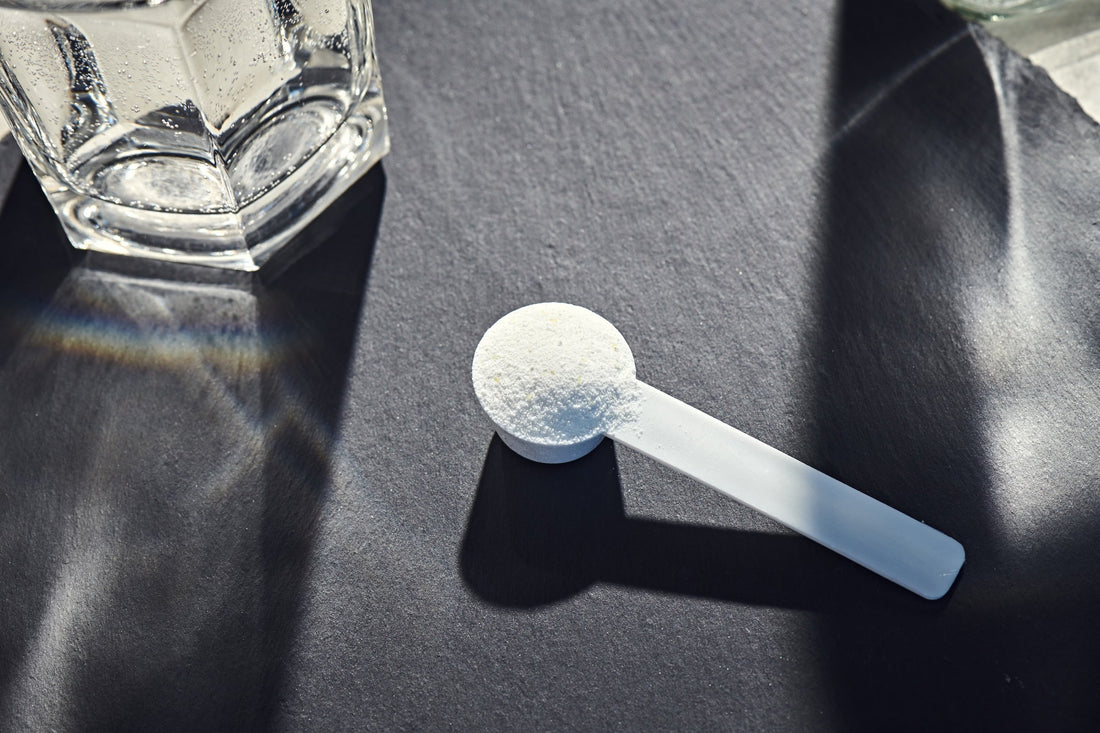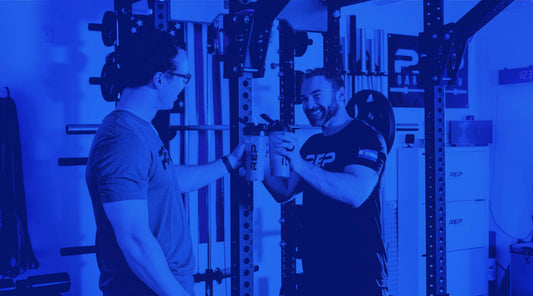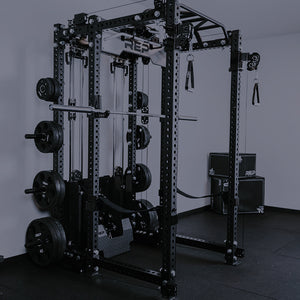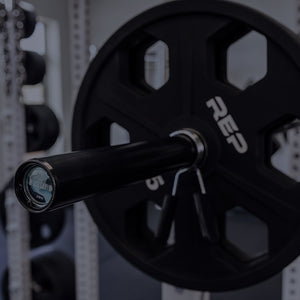
Serious benefits in a small scoop.
Creatine isn’t just for gym bros. It’s a well-researched supplement that supports women’s strength, energy, and brain health. Understanding how to use it for your particular goals can be game changing, which is why we're covering everything from safety and dosage to benefits and myths when it comes to creatine for women.
What Is Creatine?
Creatine is a compound that’s found naturally in your body and produced by your liver, kidneys and pancreas. It’s made up of amino acids arginine, glycine, and methionine. It helps your body produce energy or adenosine triphosphate (ATP), during high-intensity exercise.
You can get some creatine from animal-based foods, like meat, poultry, and seafood, but what you eat from food is generally not enough to see maximum benefits and that’s where creatine supplements come in.
Is Creatine Safe for Women?
Creatine is one of the most well researched supplements on the market, and the studies show that it’s safe for women and men to consume.
Rachele Pojednic, PhD , FACSM and Sports Nutrition Director at Stanford University notes, “For healthy individuals, creatine is one of the...safest supplements on the market. If you have kidney issues, talk to your doctor first, but for the vast majority of women, the benefits far outweigh any concerns.”
Benefits of Creatine for Women
Creatine’s benefits go beyond the weight room, although it may be most known for supporting strength and muscle gains.
Increased strength, muscle mass, and performance
According to research, taking creatine helped increase strength, power and athletic performance for women without changing body weight. If you want to make strength gains at the gym or just preserve muscle mass as you get older (super important, kids!), taking creatine can help.
Improved recovery
If you find yourself getting super sore after a heavy lift session, creatine may help. Research points to creatine helping your muscles recover faster and helping to reduce post-workout inflammation. It may even help with injury recovery.
Cognitive benefits
The mental benefits of creatine are lesser known but research supports creatine for brain health. Studies have looked at creatine’s impact on mood and depressive symptoms and found that creatine may improve outcomes, although more research is needed.
After a bad night of sleep—or a few in a row—when you’re struggling to form a coherent sentence or remember why you walked in a room, yup, creatine might help with that too. Creatine helps blunt the impacts of sleep loss on your reaction time, executive function and mood.
Common Myths About Creatine and Women
Some women fear that they may gain weight, feel bloated or bulk up if they start taking creatine. Here's what the science says about the most common creatine myths:
“Creatine makes you bulky”
According to Pojednic, this myth isn’t something you have to worry about. “It’s very challenging for women to increase muscle size.” Although creatine increases energy production to support your muscles, “you won’t suddenly look like a body builder.” Even with an intense resistance training program, you likely won’t see major changes to your muscle size.
“It causes water retention or bloating”
Creatine does increase water in your muscles, so any noticeable bloating or change in the scale is likely a little bit of extra hydration in your muscles and should dissipate after a few days. “It’s not ‘bloating’ in the way most women think of bloating. It’s actually a good thing because it means your muscles are hydrated and primed for performance,” says Pojednic.
“It’s only for bodybuilders”
We know that creatine does more than support healthy muscles. But even without the mood and cognitive benefits, it’s not just for body builders. Maintaining muscle mass is so important for women, especially as they get older. Though lots of the creatine research is focused on young athletes, creatine has shown some promising results for helping improve muscle mass as we age.
“It’s a gateway to steroids”
Ahhh, the oldest myth in the book. Creatine is not a steroid. The two are very different. Creatine is a substance your body naturally makes and is found in animal foods. Getting a little boost from creatine in your workouts and recovery is very unlikely to lead you to steroids. Rather, think of creatine as a gateway to helping you feel your best.
How to Use Creatine, for Women: Loading Phase, Daily Dosage, Timing
Using creatine is relatively simple. For most women, the recommended dose is between 3-5 g/day.
You can start with that 3-5 g/day or begin with a loading phase, where you would take about 20g/day for 5 days. The idea behind a loading phase is that you are helping your muscles saturate with creatine faster than non-loading.
Everyone’s response to creatine varies slightly, but if a loading phase sounds intense, you will likely see the same results without loading, they just may take a bit longer.
It’s important to be consistent with your creatine supplement, so take it daily at a time when you'll remember. You can take creatine before or after strength training, the timing isn’t super important.
Potential Side Effects
Healthy women are likely to tolerate creatine well. Possible side effects include mild weight gain, which is water weight in your muscles.
“With some formulations, women can feel GI distress,” notes Pojednic. “So finding the right product that works for you—gummies, powder, pills—is really important.”
One older study found that side effects like diarrhea and upset stomach were dose dependent so it may be beneficial to skip a loading phase, decrease your dose and try taking creatine with food. Staying hydrated is also helpful.
Most women won’t notice side effects, but if you are experiencing any serious side effects, stop taking creatine and check in with your healthcare professional.
Best Types of Creatine for Women
“Creatine monohydrate is the most studied, most effective, and most affordable form,” according to Pojednic. She adds, “Make sure it’s tested for purity and quality. Look for certifications like NSF Certified for Sport or Informed-Sport if you’re an athlete or just want peace of mind that there’s no adulteration in the bottle.”
Besides creatine monohydrate, there are other forms of creatine including creatine hydrochloride (HCl), buffered creatine, creatine magnesium chelate, and creatine ethyl ester. None of them have been as well studied and found to be as effective as creatine monohydrate.
Creatine is found as a powder, pill or gummy. Look for creatine with just creatine monohydrate as an ingredient. There have been some reports that creatine gummies don’t contain the amounts listed on the label, which is something to be wary of with all supplements and why it’s important to look for third party testing.
Takeaway
Creatine can support your goals in the gym, recovery and even give your brain a boost. While you may be worried about side effects or bloating, those are minimal and there is a library of evidence pointing to creatine being safe and beneficial.
FAQs
Can you take creatine while pregnant/breastfeeding?
Some studies have looked at how creatine metabolism changes while women are pregnant, but there isn’t a lot of research on supplementing with creatine during pregnancy and breastfeeding. Although creatine is generally considered safe, chat with your doctor if you are pregnant or breastfeeding before taking it.
Can creatine help with weight loss?
Creatine may indirectly support weight loss because it helps your body build muscle, which helps you burn more calories. One study found creatine helped reduce body fat compared to a placebo, although the amount was small.
How long until I see results?
You may notice results as early as two weeks into taking creatine. However, you may not notice changes for four weeks or a little bit longer.
Women’s strength training routines
Just like protein isn’t magical without a strength routine, creatine alone won’t build muscle and improve your health. Combined with a strength training routine and staying consistent with both creatine and your workouts should yield results. Most fitness professionals recommend strength training 2-3 times per week. Need inspo? Here are a handful of workouts to get you started:
similar to this

NEWSLETTER SIGNUP
Product launch information, promotions, blogs, and REP news.







